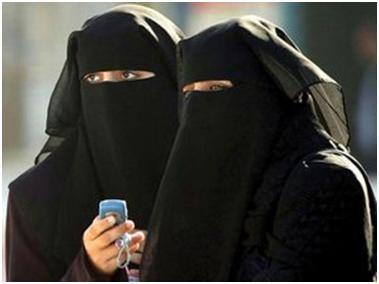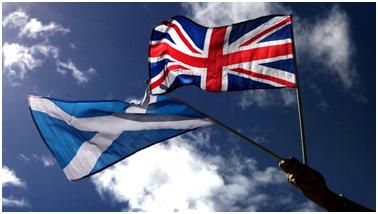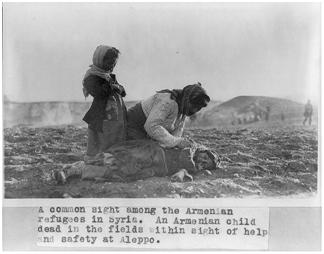
Should we abandon multiculturalism for the sake of unity in this country?
There is a misunderstanding that culture and religion are the same. This misunderstanding came to the fore when the subject of Christmas trees was discussed in the office where I work. One member of staff is a devout Muslim and some thought that he would find it offensive if the office Christmas tree was placed too close to his desk. This is all very well, but there is nothing in the Koran about Christmas trees. And I would suggest, there is nothing in the Haddith so beloved by some Muslim clerics to forbid Christmas trees. And yet this man has been convinced that a Christmas tree is as forbidden as alcohol or pork. Why? There is this mistaken conviction by some that the humble Christmas tree is a religious symbol, despite the fact that there is no mention at all about Christmas trees in the Bible.
So what is going on here? The Christmas tree is not a religious symbol. It is not like the Crib that my family place on the mantelpiece every Christmas, nor is it like a Crucifix. For centuries, for almost two millennia, the Church has celebrated Christmas in this country without the Christmas tree. The Christmas tree belongs to the culture of this country, and is no more religious that the giving of gifts at Christmas, eating turkey and putting up decorations. The midwinter festival celebrated in this country is called Christmas and comes with a variety of rituals (many of which only date back to the reign of Victoria and Albert). As such, stripped of any religious overtones, it is a festival open to all, regardless of religion. It is sad to see that the mad mullahs in this country are so determined to prevent their co-religionists from joining in the celebrations.
And now we come to the issue of multi-culturalism. Culture and religion are not the same. It is right to allow people to worship their God in whatever way they think is appropriate. But we have to be very careful about confusing the demands of culture and the demands of religion. At stake is the future of this country as a tolerant and inclusive society. To continue to be such, there has to be one culture and one law that everyone subscribes to, that embraces all people regardless of religious perspective. But we have to be clear just what is our culture.
Our culture is based on monogamy, as practised by the Romans, the Greeks and the Jews. We place great emphasis on face to face encounters, so much so, that there is a linguistic record to show the importance. Face to face, to show ones face, bare-faced cheek, lose face, save face… The covering up of women’s face, just because they are women’s faces is totally alien to our culture. Our culture allow both men and women to be proactive in finding a partner. We have a respect for equality, each step along the road to full equality has been a difficult one, the equality of races, equality of women and now equality of people who are gay. We are tolerant of others, even if there values are different from ours – and we celebrate Christmas. The only time that Christmas was not celebrated in England was when Oliver Cromwell was in power. A miserable few years for the English people. And we have one law for all.
An example is abortion. Any woman has access to abortion regardless of religion. The law does not discriminate against those whose religion bans abortion. Civil partnerships (and later marriage) are available to all regardless of religious persuasion. Adultery is not illegal. But because these things are permitted by law, the religious devotee can live to a stricter moral code. The Catholic Church forbids divorce, but there is a court system set up within the Church to examine cases of marriage breakdown and the marriage may be annulled. This is an optional add-on for Catholics and does not replace the law of the land. Shariah law can be a useful addition to the life of the faithful but must never be seen as a replacement for our law, but only as a way of maintain relationships and faith within the Mosque community.
Multiculturalism is wrong, for it fragments the wider community so that common experiences cannot be shared and as the Jews in parts of Europe found, living as a separate culture makes it easier for the pogroms that were mounted against the Jews in the 19th and 20th centuries. As a society we have a right to be able to decide what is acceptable and what is not acceptable both in terms of behaviour and dress.
 Maybe, before this referendum became a reality, I would have said YES, Scotland should be independent. From an English perspective, why do we need the Scots, with their whining and the massive chip on their shoulder about being hard done by? Hey the act of union joined two countries, Scotland was not the only country to lose its identity; England too lost something. We lost the English parliament, our nationality; we had to share everything, including our currency. What loyalty should we have to a country which gives free university education to Scottish students, and to other members of the European Union but not to those from England?
Maybe, before this referendum became a reality, I would have said YES, Scotland should be independent. From an English perspective, why do we need the Scots, with their whining and the massive chip on their shoulder about being hard done by? Hey the act of union joined two countries, Scotland was not the only country to lose its identity; England too lost something. We lost the English parliament, our nationality; we had to share everything, including our currency. What loyalty should we have to a country which gives free university education to Scottish students, and to other members of the European Union but not to those from England?
